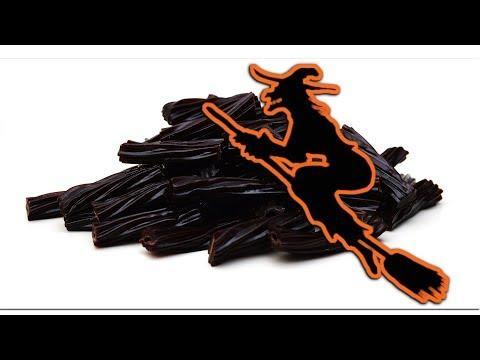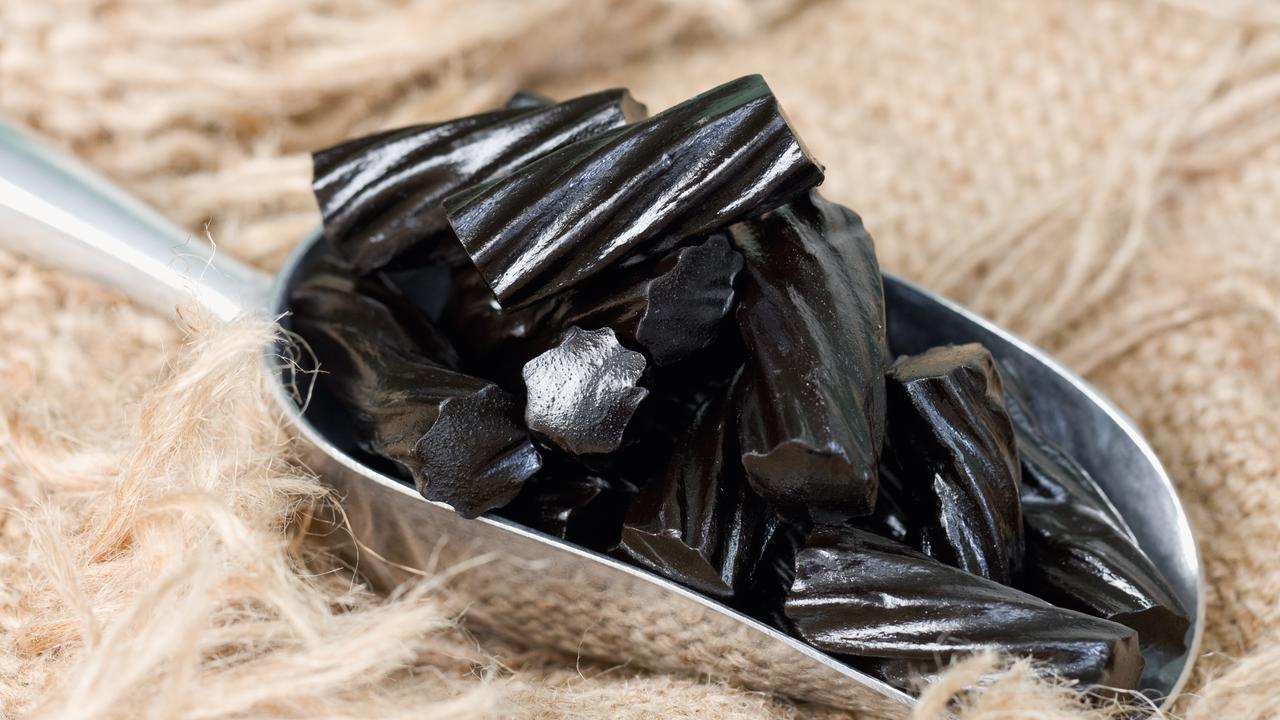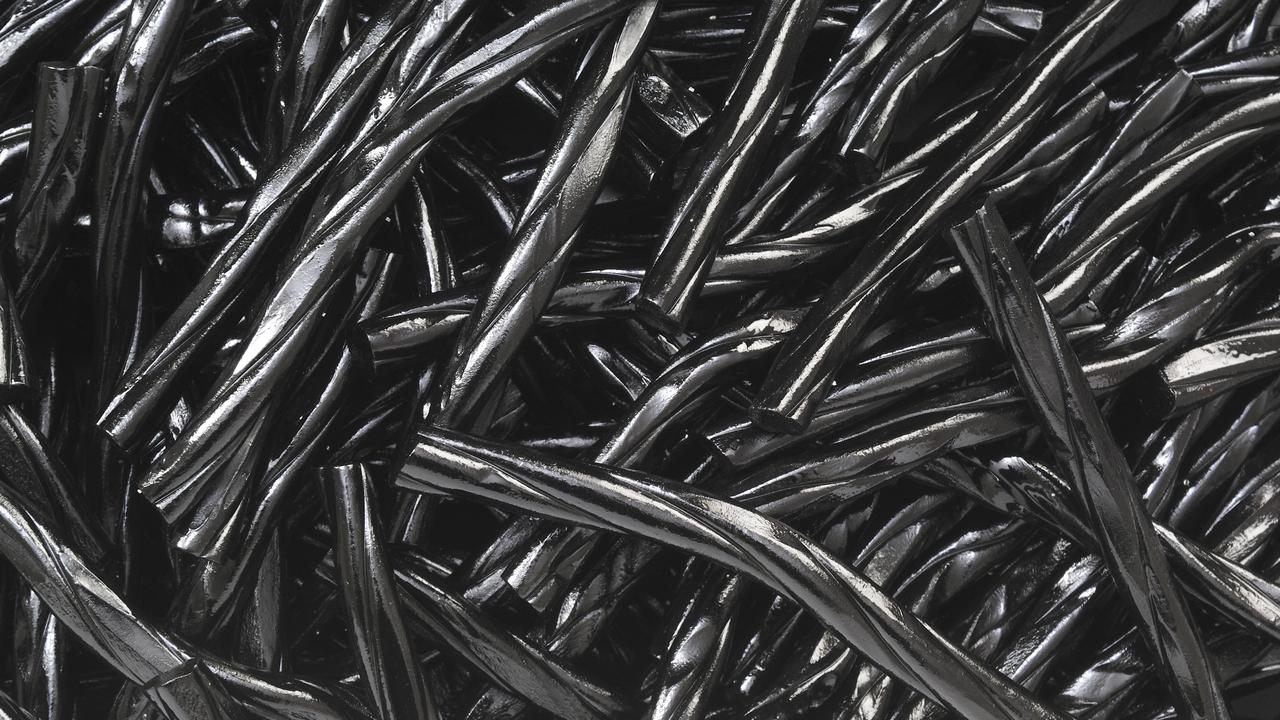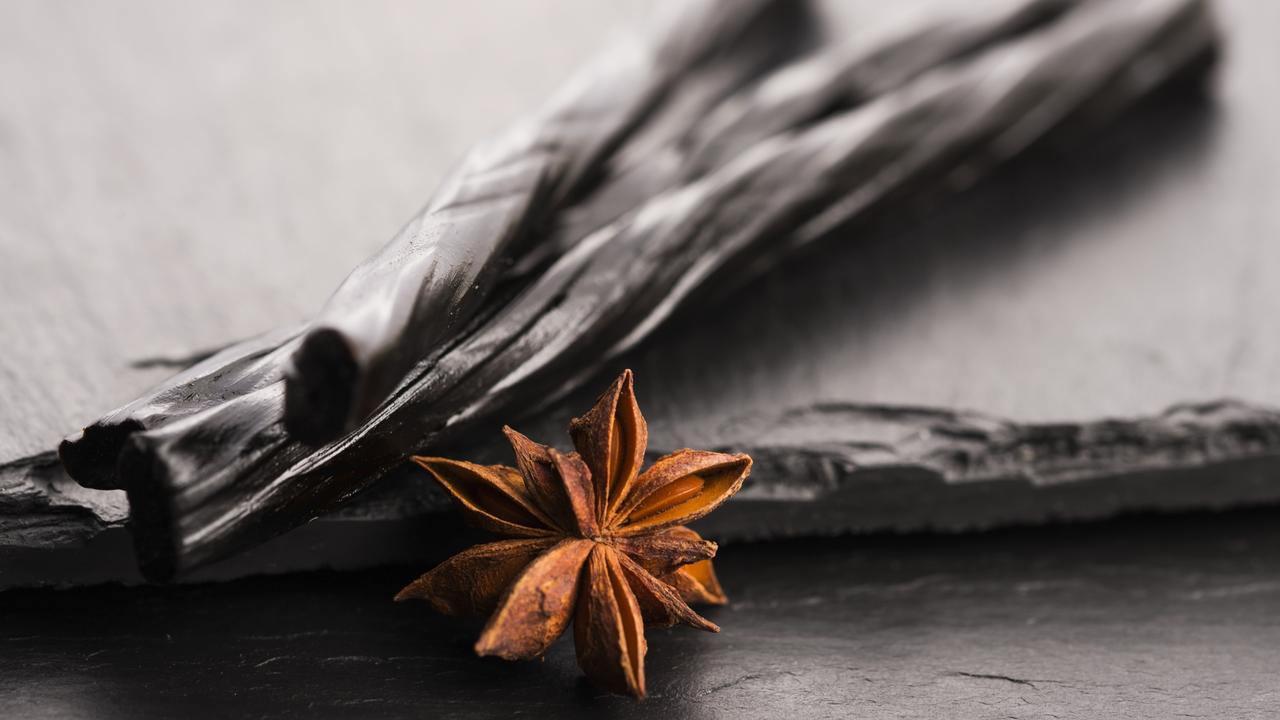Man dies after addiction to licorice caused his heart to stop
A construction worker who suffered a sudden cardiac arrest has died after he consumed more than a bag a day of black licorice.

A construction worker has died after his daily licorice habit cost him his life.
The 54-year-old US man from Massachusetts was at a fast-food restaurant last year when he suffered a sudden cardiac arrest.
He was taken to hospital but had died the following day.
The unnamed man was eating more than a bag a day of the treat, over a few weeks, when he suddenly lost consciousness, a study published Wednesday in The New England Journal of Medicine stated.
Doctors wrote that he had “a poor diet, consisting primarily of several packages of candy daily,” and that three weeks before, he switched from eating fruit-flavoured soft candy to licorice candy, which contained glycyrrhizic acid, the NY Post reported.
RELATED: Pot plant turned man’s brain to ‘liquid’

Glycyrrhizic acid is a sweetening compound derived from licorice root. It is also found in many other foods and dietary supplements which can cause dangerously low potassium.
“Even a small amount of licorice you eat can increase your blood pressure a little bit,” said Dr Neel Butala, a cardiologist at Massachusetts General Hospital who described the man’s case in the Journal.
According to the US Food and Drug Administration (FDA), eating as little as two ounces of black licorice a day for two weeks can cause a heart rhythm problem, especially for people over 40.
Dr. Robert Eckel, a University of Colorado cardiologist and former American Heart Association president, who had no role in the man’s care, said, “it’s more than licorice sticks”.
RELATED: Man, 33, catches virus twice in world first

“It could be jelly beans, licorice teas, a lot of things over the counter. Even some beers, like Belgian beers, have this compound in it.”
An FDA expert said potassium levels are usually restored with no permanent health problems when consumption of black licorice stops.
“No matter what your age, don’t eat large amounts of black licorice at one time,” the FDA warns. “If you have been eating a lot of black licorice and have an irregular heart rhythm or muscle weakness, stop eating it immediately and contact your healthcare provider.”
The expert also warned that black licorice can interact with some medications, herbs and dietary supplements.
RELATED: Can you catch COVID-19 more than once?

“Licorice is also used as a flavouring in food. Many ‘licorice’ or ‘licorice flavour’ products manufactured in the United States do not contain any licorice,” the expert explained in an online report.
“Instead, they contain anise oil, which has the same smell and taste. Licorice root that is sold as a dietary supplement can be found with the glycyrrhizin removed, resulting in a product known as deglycyrrhizinated licorice, or DGL.”




